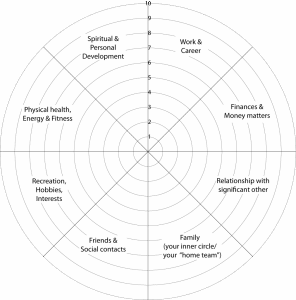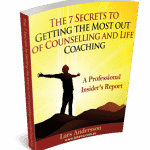What makes people take decisions and change
 I was contacted the other day by a group from Suncorp Innovation Labs, who are in the process of developing new approaches to providing services to their customers, existing and future. They are trying to figure out what makes people take decisions and change, and wanted to know my perspective on a set of questions.
I was contacted the other day by a group from Suncorp Innovation Labs, who are in the process of developing new approaches to providing services to their customers, existing and future. They are trying to figure out what makes people take decisions and change, and wanted to know my perspective on a set of questions.
After the conversation with them, it occurred to me that some of these perspectives may be of interest to other people as well, who wonder how I approach my particular brand of Life Coaching.
So, here are the questions and my answers.
What is the main reason people come to see you?
When people contact me in my capacity as a counsellor/psychotherapist, it is usually because they struggle with depression, anxiety, relationship problems, or just general dissatisfaction with how their life is turning out.
For many people, however, the idea of seeking counselling or therapy does not fit in with how they see themselves. They don’t think they have problems as such that they necessarily need to talk to a counsellor or therapist about. They already have pretty good lives, in many respects, but would like their lives to be even better. So they make contact with me as a life coach. And even when people do think they have a problem of some kind, seeing a life coach rather than a therapist is sometimes more appealing for various reasons.
My particular variation on the theme of life coaching is that I put having a meaningful life into focus. Hence I call myself a Meaningful-Life Coach. The reasons that people come to see me may be a general life dissatisfaction, or feeling lost in regards to career and future, having hit mid-life crisis or some other existential crisis, like thinking about life and death, the meaning of life and similar.
Can you immediately tell different personalities?
Every individual has their own unique personality. I don’t use any kind of classification system for personalities, like Wealth Dynamics, Enneagrams, Astrology, or similar. I want to meet with the person and get to understand who they are and how they function, without basing my understanding on preconceived ideas about them.
The personality type someone “belongs to” according to some classification system can only ever be an approximation of who they are and how they will act in various situations – it all depends on what life experiences they have had, really.
Slotting someone into a personality type, and then believing you know anything much about them, is similar to knowing what a person’s parents are like, and then believing you know what the person is like. Sure, to some degree you may be able to make a qualified guess, but many times you will be wrong – and perhaps by then already blindsided by your ideas.
Is there a pattern between certain personalities and risk appetite or spending habits?
Of course, there are patterns in personalities. Some people are more risk taking/avoiding than others. Some people have unhealthy spending habits, some don’t. But to predict who is who, and who will do what, based on some classification system is not my approach. I get to know them, and then deal with whatever the challenges each individual is facing.
What type of advice or coaching do you mainly find yourself offering?
To pursue what, to them, feels like a meaningful life. The core of my advice is for each individual to be true to themselves, as who they truly are. No one can be happy by trying to be someone else than who they are.
The most important thing for having a meaningful life is becoming clear about what really matters to you, and to put your energy and efforts into pursuing that.
I often use one or several stories/scenarios that I have created, to bring into awareness what my clients really want out of their lives. I help them become clear about what their true values are, and I help them see how they can overcome challenges and obstacles to living according to their values.
If possible and if a client thinks along such lines, I help them identify their true passion, their life purpose. Then the work becomes focused on how to go about pursuing this passion, living their purpose.
What’s the level of financial self-awareness when they come to you?
I rarely see people who specifically seek advice from me on financial issues. Nevertheless, as far as people’s financial awareness, I think there is a common misconception that financial success leads to happiness.
I have had several clients who have succeeded beyond what most of us hold for even achievable. They have told me how the plan has all come together; they have worked hard, they have invested wisely, they have been able to retire early etc. And around that point of their life story, they start crying, telling me how not-happy they are still…
If you want happiness, you must practise being happy with what is and what you have. Now, today. If you are no good at that, it doesn’t matter what ‘your now’ contains, you will not be able to appreciate it, and you will not be happy with it, but continue to strive for the next achievement that you believe will do the trick.
Do you ever get clients who seem to find it hard to stick to financial habits?
To establish new habits often requires a degree of effort. We need to overcome the temptation to stick to our old ways, and be prepared to push through our resistance to doing something differently. This typically takes self-discipline, whether we are talking about changing our financial behaviour or any other kind of behaviour.
Self-discipline is a tricky matter, though, as it usually takes self-discipline to develop self-discipline. And not everyone has enough self-discipline to put in the required effort long enough for a habit to form. When self-discipline is lacking, what is required is a strong motivation; something that is really, really compelling to strive toward.
The swimmer who can vividly enough imagine the pleasure they will feel when they are standing on the Olympic podium while the National Anthem is playing, will be more likely to put up with the pain of doing lap after lap in the training pool week after week. What they may perhaps lack in self-discipline will then be achieved through the desire for that end-goal pleasure.
And as they win a few smaller events along the way, and get to stand on the podium (even in front of a very small crowd), they get to taste the pleasure of winning, and find their motivation increasing. Importantly too, as they continue to overcome their resistance to putting in the hard work, their self-discipline also slowly grows.
Often the reason people give up on trying to establish healthy habits, is that they have been trying to achieve something that is not what they truly want. Or because the connection between what they are trying to achieve and what they truly want is not well developed. So, one of the aspects of my work is to help people identify how a new behaviour, habitual or not, can help them get to what they truly want in their life.
What do you think people are looking for when they come through your door?
They want to be happy. They may have ideas of what will make them happy, but be struggling with challenges/obstacles that are getting in the way, and they want help with overcoming those. While I help them overcome their challenges and obstacles, I at the same time help them look at life from a different perspective, so that they can see more paths to the happiness they are seeking. And very often the case is, that the happiness they are seeking does not require going down the paths they have so far imagined. There may be other paths that are shorter, and much more enjoyable to go down, that quicker lead to the happiness they are seeking.
+++++++++++++++++
If you have an interest in knowing more about my perspective on some of these issues and how I may be able to assist you on your path to a meaningful life, please, contact me now so we can have a chat.

